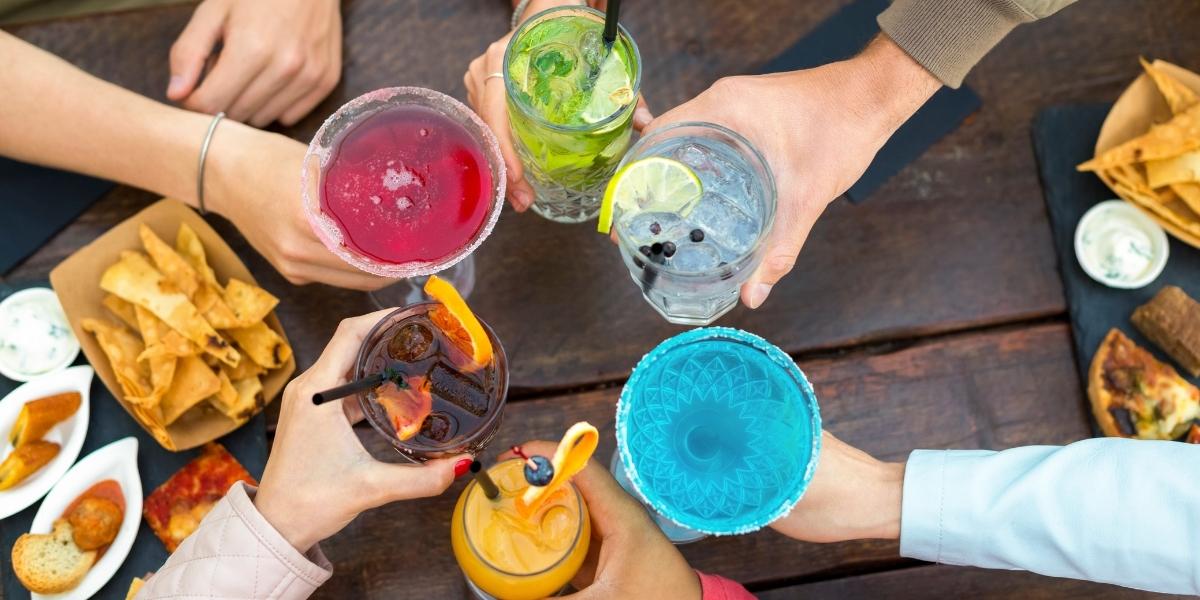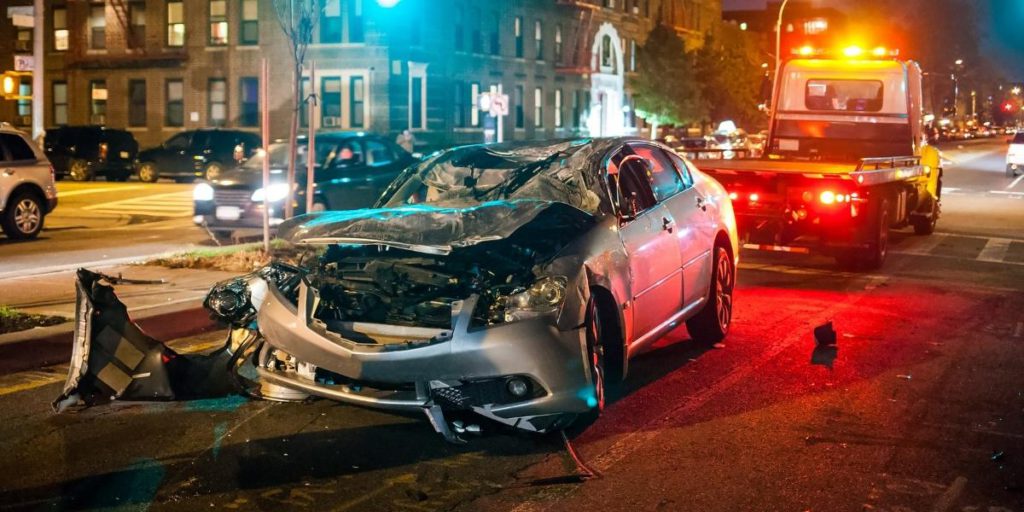Binge Drinking vs. Alcoholism

Every year in the United States, millions of people will take their first sip of alcohol. It doesn’t become a problem for many people, but it becomes a lifelong struggle for roughly 7% of the United States population.
People who don’t drink alcohol regularly would tell you they don’t have a drinking problem; however, consuming large amounts of alcohol in one sitting, even a few times a month, is considered binge drinking. And although binge drinking is often overlooked, it is a widespread type of alcoholism with inherent risks and dangers.
Each episode of binge drinking increases the likelihood of safety and health issues and developing an alcohol use disorder (AUD).
Overcoming binge drinking and the habits that lead to it requires a rehab program that is evidence-based and experienced with its unique nature to ensure success.
Binge Drinking Definition
Binge drinking is defined as consuming enough alcohol in a short period of time to bring your blood alcohol concentration (BAC) to 0.08 grams, or .08%, or higher.
The National Institute on Alcohol Abuse and Alcoholism (NIAAA) considers binge drinking four or more drinks for adult women and five or more drinks for adult men within two hours or less.
In teenagers and young adults, three drinks for girls and three to five drinks for boys is considered binge drinking by the NIAAA.

Is Binge Drinking Alcoholism?
Binge drinking and alcoholism are not the same, but they are very closely related.
Mental health professionals use the Diagnostic and Statistical Manual of Mental Disorders, Fifth Edition (DSM-5), for diagnosing and treating disorders. The DSM-5 considers alcohol abuse and alcoholism forms of alcohol use disorder (AUD).
The Centers for Disease Control and Prevention (CDC) defines binge drinking as a “harmful risk behavior associated with serious injuries and multiple diseases. It is also associated with an increased risk of alcohol use disorder.”
While binge drinking is not always a precursor to developing an AUD, it is still dangerous and harmful. Many binge drinkers also incorporate drugs into their drinking habits, leading to substance use disorders (SUD).
One of the most significant differences between binge drinkers and people dealing with alcohol abuse is their patterns of drinking and drinking habits. Another critical difference between alcoholism and binge drinking is the ability to stop drinking.
Binge drinkers can often go for days or weeks without having any alcohol, then engage in excessive drinking over a day or more. Binge drinking is also mainly situational and frequently associated with college students and young adults at parties or bars.
In reality, many adults binge drink without realizing it. They work and function daily without cravings for alcohol, then engage in excessive drinking after work, on weekends, or special occasions.
People with alcohol addiction do not always consume large amounts of alcohol, but they cannot go long periods without seeking it out and drinking. Instead, they might have one or two drinks throughout the day to avoid cravings for alcohol or experiencing alcohol withdrawal syndrome (AWS).
While some alcoholics might binge drink, not all binge drinkers are alcoholics.

Binge Drinking Effects
The most dangerous effects of binge drinking come from impaired judgment and a BAC over .08%. There are also long-term health risks for people who frequently binge drink.
The dangerous physical and behavioral risks associated with binge drinking include:
- Unintentional injuries— falls, cuts, bruises, etc.
- Violent encounters
- Alcohol poisoning
- Blackouts
- Driving Under the Influence (DUI) charges
- Car accidents
- Risky sexual behavior
- Sexually transmitted infections (STI)
- Miscarriage
- High blood pressure
- Neurological complications
- Alcohol use disorder (AUD)
- Alcohol withdrawal syndrome (AWS)
- Liver disease
- Heart disease
- Kidney disease
- Mental health decline
- Coma
- Death
Binge Drinking Facts
The costs of excessive alcohol consumption don’t just affect individuals. Binge drinking impacts loved ones, bystanders, public health services, and economies.
Some sobering facts about alcohol abuse and binge drinking gathered by the NIAAA include:
- In 2014, binge drinking cost the United States $240 billion in emergency health services, public health campaigns, criminal justice system costs, and lost workplace productivity combined
- 26.5% of people over 18 engaged in binge drinking at least once in the past month
- 6.6% of people over 18 said they had binge drank on five or more days out of the previous 30 days
- 1,500 college students between 18-24 will die yearly of alcohol-related causes
- 1 in 10 people 65 or older admit to binge drinking once a month
- 14.4 million American adults have a diagnosed alcohol use disorder
- 18.5% of emergency department visits annually involve alcohol
- 1 in 5 college women are sexually assaulted in alcohol-related situations
- 50% of reported sexual assaults involved the perpetrator, victim, or both consuming large amounts of alcohol
- 22.1% of opioid overdoses had alcohol as a contributing factor
- 95,000 people approximately die each year from alcohol-related causes
- 28% of all driving fatalities had alcohol impairment as the cause
- 1 in 3 liver transplants is due to alcohol-related liver disease

Risk Factors for Alcohol Abuse
There is no magic formula to predict who will struggle with binge drinking and alcohol abuse, but there are some factors that increase the odds.
Risk factors for binge drinking include:
Culture
Alcohol is a fixture at many celebrations throughout life, rites of passage, group events, and bonding experiences. Using alcohol to reward achievements and associating it with feeling happy can become problematic.
Peer Pressure and Social Settings
College students are a primary example of this; however, events like office happy hour, bachelor and bachelorette parties, class reunions, tailgating, and others frequently center around alcohol. There is a lot of pressure to fit in and drink to avoid judgment and questions.
Trauma and Mental Health Conditions
People with depression, anxiety, post-traumatic stress disorder (PTSD), and other mental health conditions frequently turn to alcohol to self-medicate. As tolerance builds, they require more and more to drown out the feelings they are trying to avoid.
Fun
Some people like the rush and feeling of getting drunk or not being able to recall everything that happened the night before. But it takes more and more to reach that high, leading to addiction and dangerous situations.
Binge Drinking Treatment
Conversations about alcohol abuse often leave out binge drinking because it doesn’t fit the popular notion of alcoholism. Still, it is a severe condition that requires multi-layered treatment programs to overcome.
Northridge Addiction Treatment Center specializes in treating the whole person with evidence-based therapies and compassionate, experienced professionals.
Binge drinking is frequently a symptom of other unaddressed behavioral urges or mental health conditions. NATC uses dual diagnosis to reveal, diagnose, and treat co-occurring mental health conditions while treating substance use disorders.
The staff at NATC understands that you’ll face situations that might trigger the urge to drink when you leave our residential treatment center. Cognitive-behavioral therapy (CBT) teaches you how to recognize, manage, and re-direct those thoughts and triggers in ways that still allow you to live a happy, healthy life and stay on the path to recovery.
Reach out today to speak with our treatment specialists with any questions and concerns you may have. Recovery begins with a phone call.
Find Meaningful Recovery
Our caring and compassionate specialists are eager to help you comfortably navigate this journey to recovery. Our individualized treatment plan, programs, and therapies may be a perfect match for you or your loved one. Let us assist you in living the happy life you deserve. It starts with a phone call.




